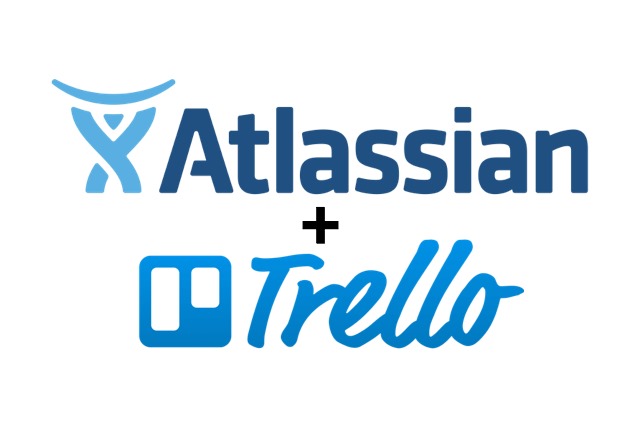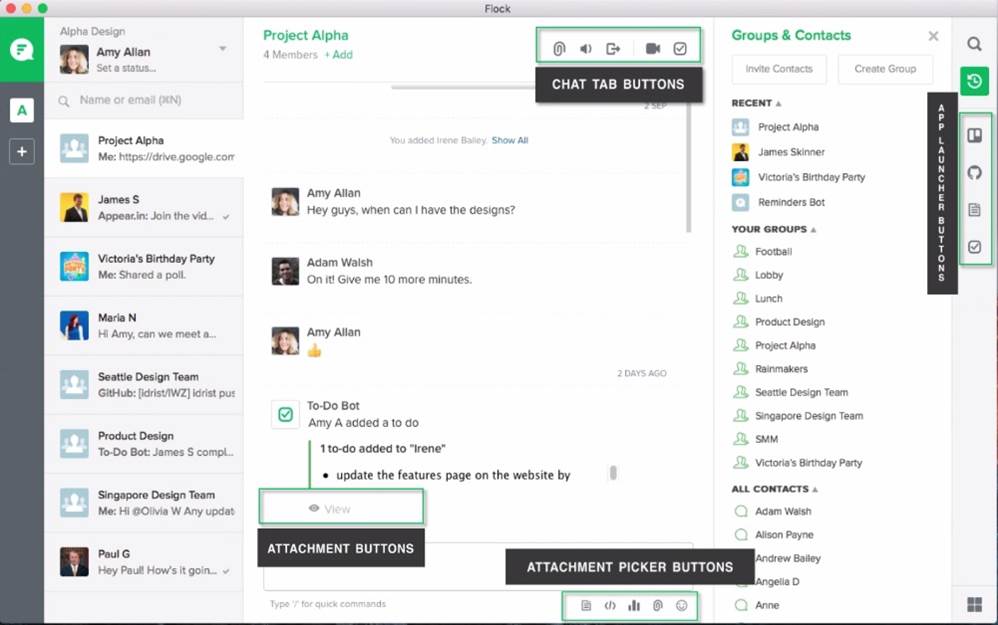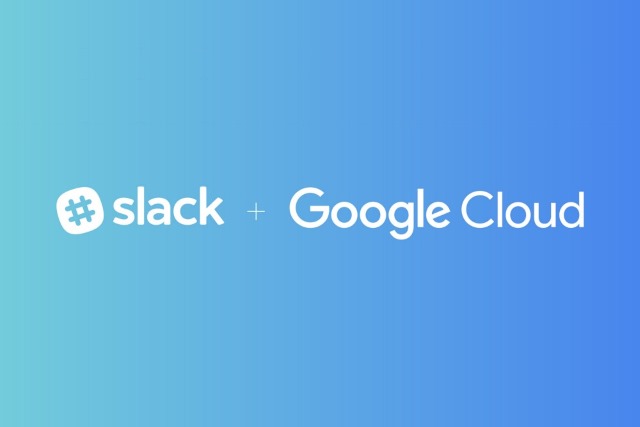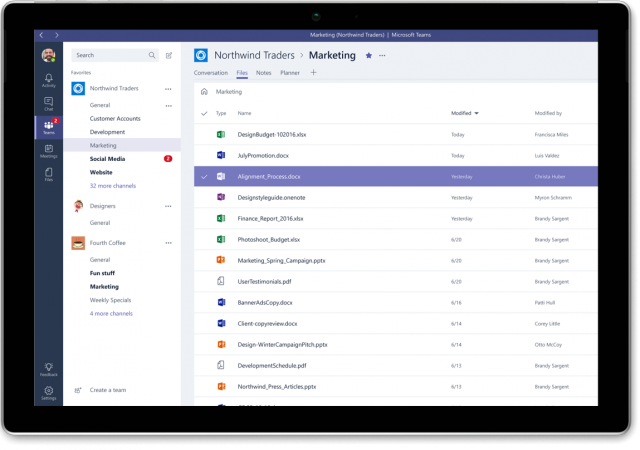
New Flock plug-in targets fake news -- you'll never guess what happens next
Fake and misleading stories plague the internet and there's always a risk that if not spotted they can influence decisions within an organization.
Enterprise collaboration platform Flock is aiming to stop the spread of unreliable news, especially within business environments with the launch of a Fake News Detector plug-in.

HipChat-maker Atlassian snaps up Trello
The world of communication services is dog eat dog, and Australia's Atlassian has just gobbled up Trello.
The company behind HipChat -- which battles with Slack as the darling of collaborative work environments -- has today bought Trello for $425 million. The deal sees Atlassian handing over $360 million in cash, with the rest made up in stock.

ChatOps: What it is and how it's evolving
They’re calling 2016 "the year of the chatbot". From diverse sectors such as dining, travel and retail, chatbots are increasingly being used for a variety of different purposes. This is part of a broad shift away from point-and-click based apps to chat-based user interfaces. Software development is no exception to this trend -- GitHub is credited with coining the term "ChatOps" back in 2013 when it created Hubot, its open source chatbot to help with DevOps practices.
Initially designed as an integration with messaging apps such as Campfire, Hubot has since been starred over 11,000 times on GitHub, and a variety of companies, from Box to Lyft have begun embedding them in their own development workflows.

Flock guns for Slack with its 'chat operating system'
Slack came from nowhere to be one of the leaders of the collaboration market in just two years. But being a leader means other people are keen to take a share of your business and team messenger application Flock is the latest to be eyeing up Slack's market.
Today Flock is launching a development platform, FlockOS. It describes this as a chat operating system, that allows developers to build customized apps, bots and integrations. These can either be used within their own organizations, or published on the Flock Appstore, making them available for all Flock users.

Managing collaboration tools in the enterprise
Most companies have some sort of electronic communications policy. It’s probably been updated ad-hoc over the last few years to include new communications applications, but often lacks the enforcement tools that companies initially used when email first came about. With Facebook looking to take center stage in business communications with Workplace it’s time for organizations to start taking the governance of social and collaboration platforms more seriously.
For heavily regulated industries, such as financial services, the initial driving force behind managing data communications more effectively was compliance with a myriad of acronym loaded legislation from MiFID II (Markets in Financial Instruments Directive II) to MAR (Market Abuse Regulation). But there was a significant upside for firms achieving compliance -- improved security and reduced exposure to internal fraud and litigation.

Google cozies up with Slack for tighter integration
Faced with competition from the likes of Microsoft Teams, Slack is strengthening its partnership with Google to bring greater cloud integration to users.
The beloved communication tool is teaming up with Google Cloud to improve Google Drive support, but there's also support for bots in the form of Drive Bot. Security and sharing is also in line for improvements, and the recently-announced Team Drives from Google will also be supported.

Tech Deal: Get a Newton subscription for 50 percent off
You will find plenty of deals on tech products this Black Friday and Cyber Monday. As usual, the focus is on hardware, but there are some significant discounts to be had on software as well.
Case in point is Newton, my favorite cross-platform email app. Formerly known as CloudMagic, in September it received a rebranding which also introduced a subscription that unlocks a number of premium features. And, starting today until November 29, you will be able to purchase one for 50 percent off.

Why Facebook Workplace has no future
On October 10, Facebook debuted its long-incubated and much-anticipated platform for business: Workplace. But within days it was already clear that it wasn't going to live up to the hype. In fact, there's no way it could have.
This is not meant as a snub of Facebook. It makes perfect sense that Mark Zuckerberg would want his platform to become as popular for work as it is for fun. It has even made some initial converts. Hootsuite CEO Ryan Holmes defended Workplace -- which he has implemented at his offices -- in a Fast Company article because it represents "part of a broader wave of the consumerization of IT".

Test email brings UK's NHS to its knees
The entire email system of the UK NHS (National Health System) crashed on Monday after an IT contractor sent out a "test email" to all of the 1.2 million staff using the system.
News of the crash first appeared after NHS staff began to complain about the test email they had received from an IT contractor in Croydon on Twitter. The email itself was sent to everyone in the organization and that along with the high number of replies sent out caused the entire email system to be overloaded and go offline.

What you need to know about enterprise connectivity
Connectivity is vital for all businesses. Whether you need to communicate with customers, clients or employees, or simply rely on it to deliver your service, the importance of connectivity cannot be overstated.
What’s more, this importance is clearly growing. In the always-on, cloud-based, mobile-first digital world that we inhabit, enterprise connectivity is not merely desirable -- it is expected at all times.

Slack’s morning after
The rite of passage from youth to adulthood is filled with "morning after” moments -- those times when you realize that only 24 short hours ago (or less) you had bad judgment. Last Wednesday is Slack’s morning after... it thought it mattered as much as Microsoft.
Slack is a great product with deeply devoted fans, there’s no doubt about that. Its management has embraced the "accidental genius" narrative ("We don’t know why people use our product"), have talked about revolutions, and have driven one hell of a valuation. Good for them. Sadly, witty narratives, claims that your technology is disruptive and a lot of paper wealth doesn’t often translate into success as an enterprise software company.

What you need to know about enterprise collaboration
Enterprise collaboration, sometimes abbreviated to EC or ECS for enterprise collaboration systems, is becoming an increasingly vital tool for many businesses. Essentially, it comprises various forms of hardware and software used to enable the seamless and efficient sharing of information and resources within a particular company.
Enterprise collaboration systems can simply be relatively common communication tools such as email and instant messaging. Increasingly though businesses are turning to more bespoke solutions that combine these functions with project management and document management software. It is also worth noting that enterprise collaboration can prove beneficial for teams based in the same office, or those separated by thousands of miles. Collaborative technology is about breaking down the barriers preventing enterprise co-operation from taking place, whether they are departmental, geographical, temporal, or anything else for that matter.

What you need to know about unified communications
Unified communications (UC) refers to a technology whereby a number of different communication media or platforms are connected and accessed as if they were a single entity. In practical terms, this enables businesses to employ a less fragmented approach to communication, allowing them to access and manage their internal and outward comms more easily.
The breadth of applications covered by unified communications is relatively wide and growing to accommodate new methods of interaction. UC may incorporate email, instant messaging, smartphones, landlines, fax and social media outlets. Unified communications tools are also capable of handling both audio and video content, which is why they are increasingly being adopted by businesses located across a broad spectrum of industries.

Microsoft launches Teams -- and Slack is worried
It is no secret that Microsoft has been working on a Slack rival, but it is not until today that we get to take a proper look at the new collaboration tool. Called Microsoft Teams, it will officially launch in the first quarter of 2017, though the software giant is making it available as a public preview starting today. Should you give it a try?
The benefit to Microsoft Teams, as the software giant explains it, is the integration with some of its most important products and services, like Office 365 and Skype, to help users collaborate more easily on different projects. You also get support for services like GitHub and Twitter and different security features, but those are also available in other collaboration tools -- like Slack, for instance.

Facebook introduces PayPal integration in Messenger app
In an effort to make it easier for users to pay through its messaging service, Facebook has added PayPal as a new payment option in the Messenger app.
The deal between the two companies will allow customers to use PayPal when shopping through Facebook Messenger -- and they will even be able to use the service to pay for items purchased through merchants' chatbots. The online payment service had added that it will also be making it easier for users to link their PayPal account to their Facebook account.
